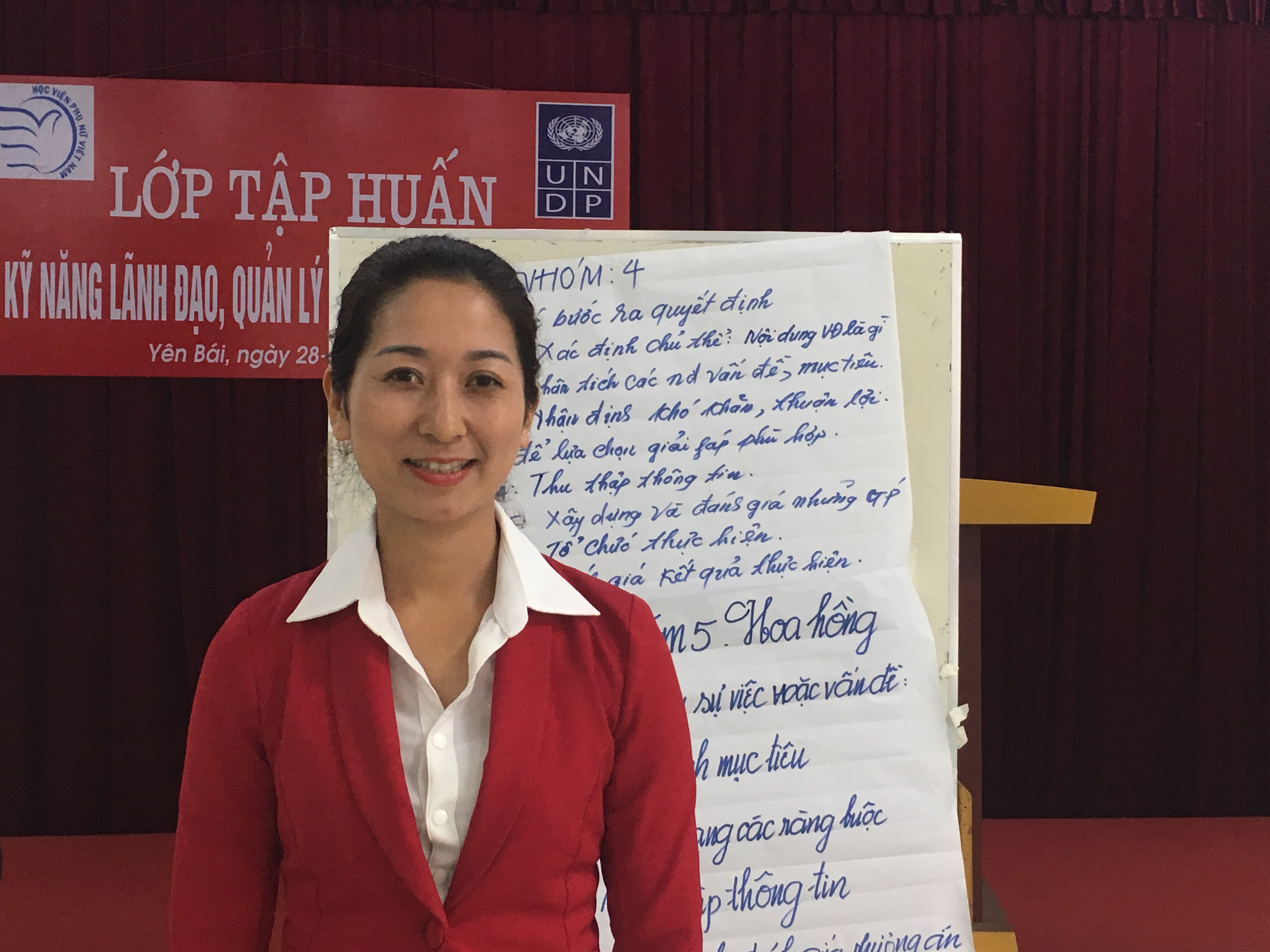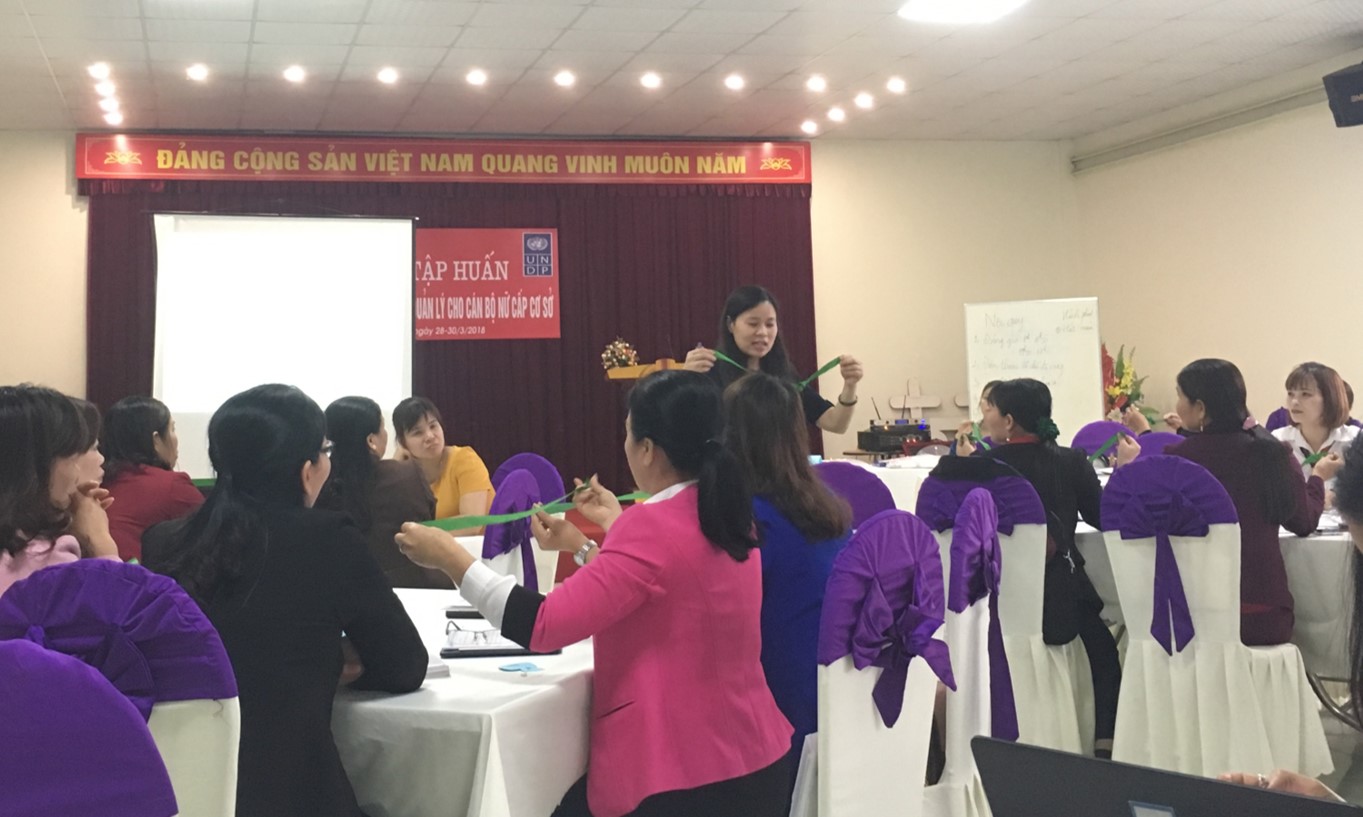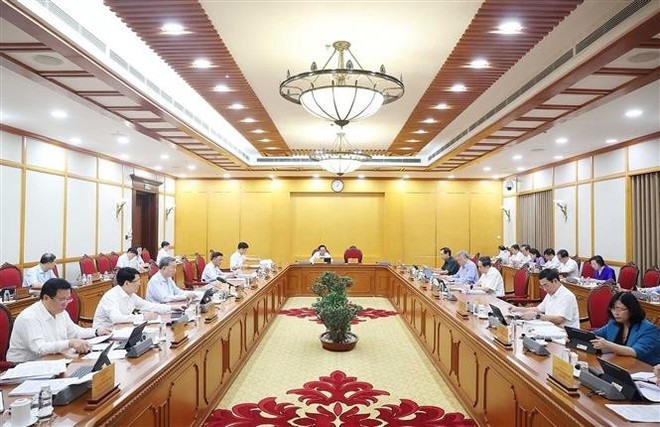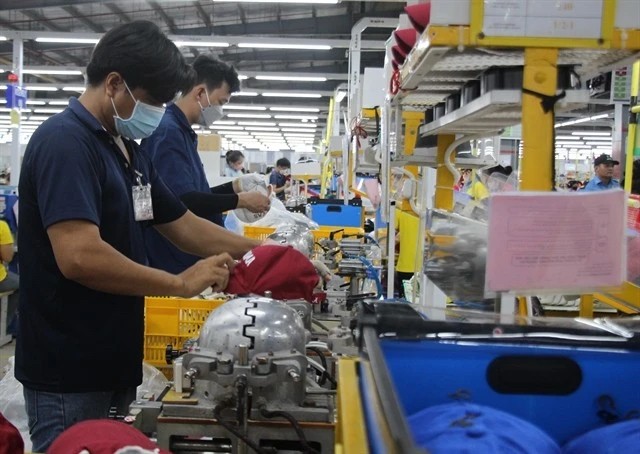Yen Bai: UNDP help ethnic women improve leadership skills
Vu Thi Nhung remembers the first time she mediated a land dispute. Her hands were clammy, her knees were knocking and she could not get the words out. Over the years she has become better at dealing with conflicting parties. But in a region and culture dominated by men, it's never easy.

Vu Thi Nhung's leadership skill is enhanced, thanks to UNDP Vietnam and the Viet Nam Women's Academy (source: UN)
Now she feels she is better equipped than ever before, following a pilot workshop aimed at developing leadership skills among women in ethnic communities, organized by UNDP Viet Nam and the Viet Nam Women's Academy.
"I can apply what I have learned today immediately to my work. I deal with a lot of conflicts among local people, including mitigating land disputes," said Ms. Nhung. "I have learned about options that are more creative to helping resolve difficult situations."
Nhung acts as secretary of Women's Youth Union and hails from Yen Bai province, where leadership roles among women are few. Yet many of them are seeking to either move into leadership roles or attain higher status. More than 93% of female community leaders in Yen Bai have shown their strong interest to learn problem-solving, mediation and coordination skills which are directly applicable to their current work as a local leader.
Yen Bai's lack of women in leadership positions is a challenge reflected across the country. Despite strong progress in certain areas on gender equality in Viet Nam, including the development of laws for gender mainstreaming, women are still vastly under-represented in decision-making positions. Many face challenges in participation including discrimination in screening, hiring and promotion practices in the workplace, and securing political nomination and promotion practices. The situation is even worse for ethnic minority women in rural areas who are among the most vulnerable and marginalized in society.
According to Caitlin Wiesen, Country Director of the United Nations Development Programme (UNDP) Viet Nam, "Leadership training opportunities bring a real benefit to empower women to be progressive leaders and changemakers in their communities. It is in keeping with the SDGs to ensure: 'no one is left behind'."
In the opening remarks of the training, Dr. Catherine Phuong, Head of the Governance and Participation Team of UNDP Viet Nam, also emphasized that women's representation is a matter of equality and fairness and decision-making must apply gender lens.
"What I believe is most important for women's empowerment is enhancing women's choices and freedom to become 'happy'," she said sharing her own life experience. "One of the most important steps you can take toward achieving your greatest potential in life is to remain true to yourself."

Overview of the workshop (source: UN)
This pilot training supported by UNDP aims to improve the capacity of female leaders including those from ethnic minority groups working at grassroots level in the public sector in Yen Bai and Lao Cai. Workshop participants learned how to identify and analyze problems, as well as collaborate to make good decisions with a use of collective wisdom in problem solving. They also actively participated in learning many other leadership skills including presentation, communication, delegation and coordination skills.
"I have learned better communication with co-workers and citizens. It leads to good and careful decision makings," one of the participants shared after the workshop.
This intensive training initiated and conducted by UNDP Viet Nam is to empower women to have full and effective participation in leadership and support Viet Nam in its journey towards achieving SDGs, particularly SDG 4 which calls for inclusive and equitable quality education and the promotion of life-long opportunity for all, together with SDG 5 on gender equality and empowerment of all women and girls./.
( VNF/UN VN )
Recommended
 National
National
Vietnam News Today (Jun. 7): Prime Minister works with Estonian firms to accelerate projects in Vietnam
 National
National
Vietnam News Today (Jun. 6): Foreign Investment in Vietnam Surges in Five Months
 National
National
Vietnam News Today (Jun. 5): PM sets off for attendance at UNOC 3 in France, official visits to Estonia, Sweden
 National
National
Vietnam News Today (Jun. 4): Vietnam - Promising Candidate for Southeast Asia’s Next Powerhouse
Popular article
 National
National
Shangri-La Dialogue 22: Vietnam Highlights Some Issues of Ensuring Stability in a Competitive World
 National
National
Vietnam News Today (Jun. 3): PM Pham Minh Chinh to Attend UN Ocean Conference, Visit Estonia, Sweden
 National
National
Vietnam News Today (Jun. 2): Vietnamese Trade Mission Sounds Out Business Opportunities in United States
 National
National



